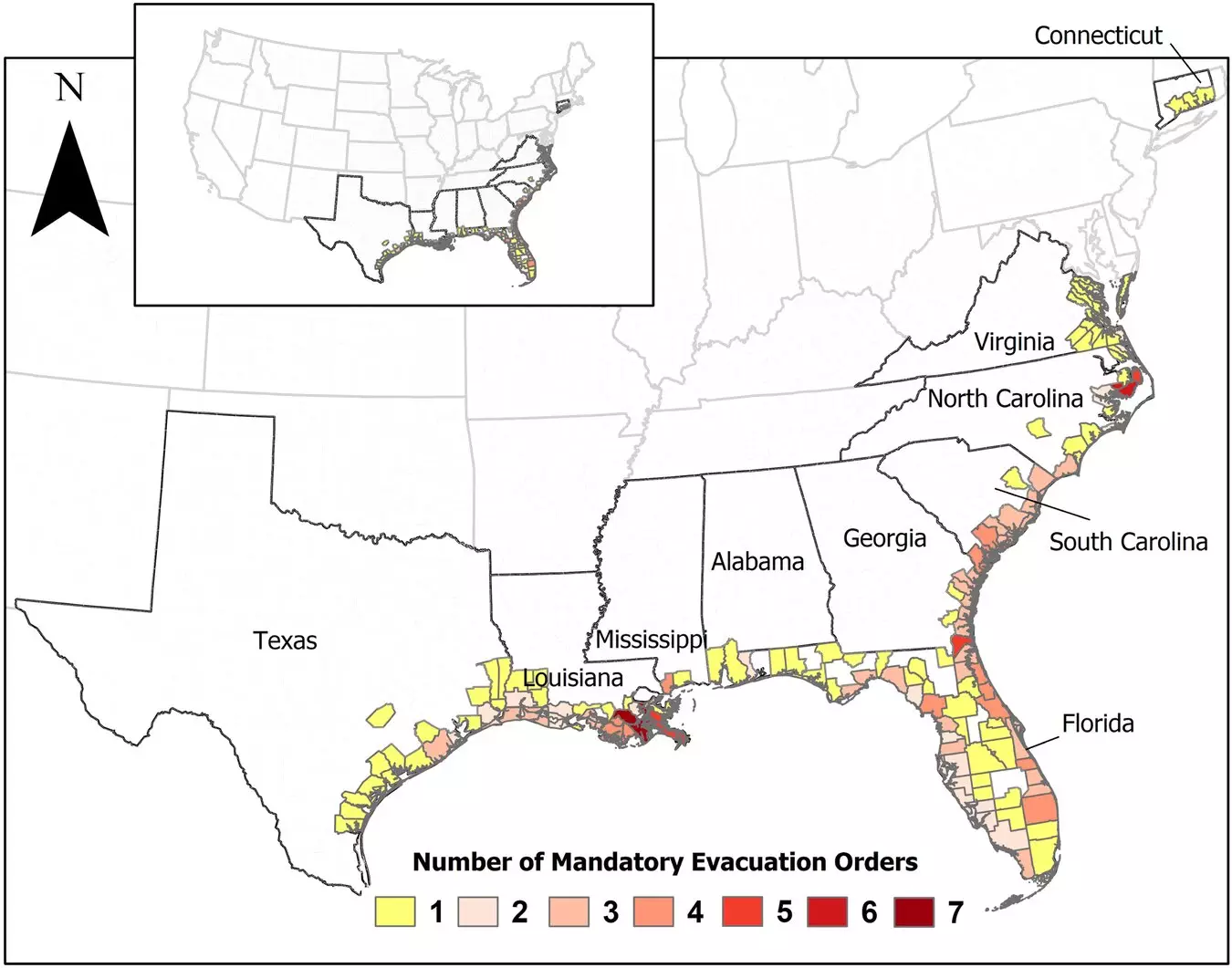Hurricanes are natural disasters that can cause significant damage and loss of life. In order to mitigate the impact of these storms, it is crucial to have effective evacuation orders in place. A team of University of Virginia researchers recently released the first-ever database of hurricane evacuation orders in the United States. This database, known as HEvOD (Hurricane Evacuation Order Database), aims to provide valuable insights into the effectiveness of evacuation policies and strategies.
Data Collection Challenges
Creating a comprehensive database of hurricane evacuation orders was no easy task. The researchers faced numerous challenges during the data collection process. Evacuation laws and policies vary widely across states, making it difficult to standardize the information. Different jurisdictions have different authorities for issuing evacuation orders, further complicating the process. Additionally, the researchers had to navigate through various platforms used for disseminating evacuation orders, including press conferences, social media, and news outlets. Despite these challenges, the team was able to compile a detailed database that can be used by researchers and practitioners to improve emergency response strategies.
The HEvOD database offers a wealth of information that can help improve the effectiveness of evacuation orders. By analyzing past evacuation orders, government officials and emergency management teams can identify trends and patterns that could predict the need for evacuations more accurately. This information can lead to more targeted and timely evacuation orders, better resource allocation, and ultimately, reduced loss of life during hurricanes. The database also allows for integration with other data sources, opening up opportunities for interdisciplinary research in fields such as social science, urban planning, and environmental science.
The HEvOD database is already being used to answer important research questions related to hurricane evacuation decision-making. For example, researchers are quantifying the effectiveness of mandatory evacuation orders issued during specific hurricane events. By studying the relationship between evacuation orders and evacuation patterns, researchers can gain valuable insights into how to improve evacuation strategies in the future. The team plans to update and expand the database annually after each hurricane season, ensuring that it remains relevant and useful for researchers and practitioners.
In addition to research applications, the HEvOD database also allows for community engagement. Users can contribute missing data or correct errors on the database’s website, improving the quality and utility of the information. This collaborative approach ensures that the database remains accurate and up-to-date, benefiting both researchers and government officials involved in emergency management.
The release of the HEvOD database marks a significant milestone in hurricane preparedness and response. By providing a comprehensive collection of hurricane evacuation orders, researchers and practitioners have access to valuable insights that can enhance public safety and community resilience. The database serves as a foundation for analyzing evacuation strategies and procedures, leading to more effective emergency response plans and policies. With continued updates and community engagement, the HEvOD database will play a vital role in improving hurricane evacuation practices in the United States.


Leave a Reply